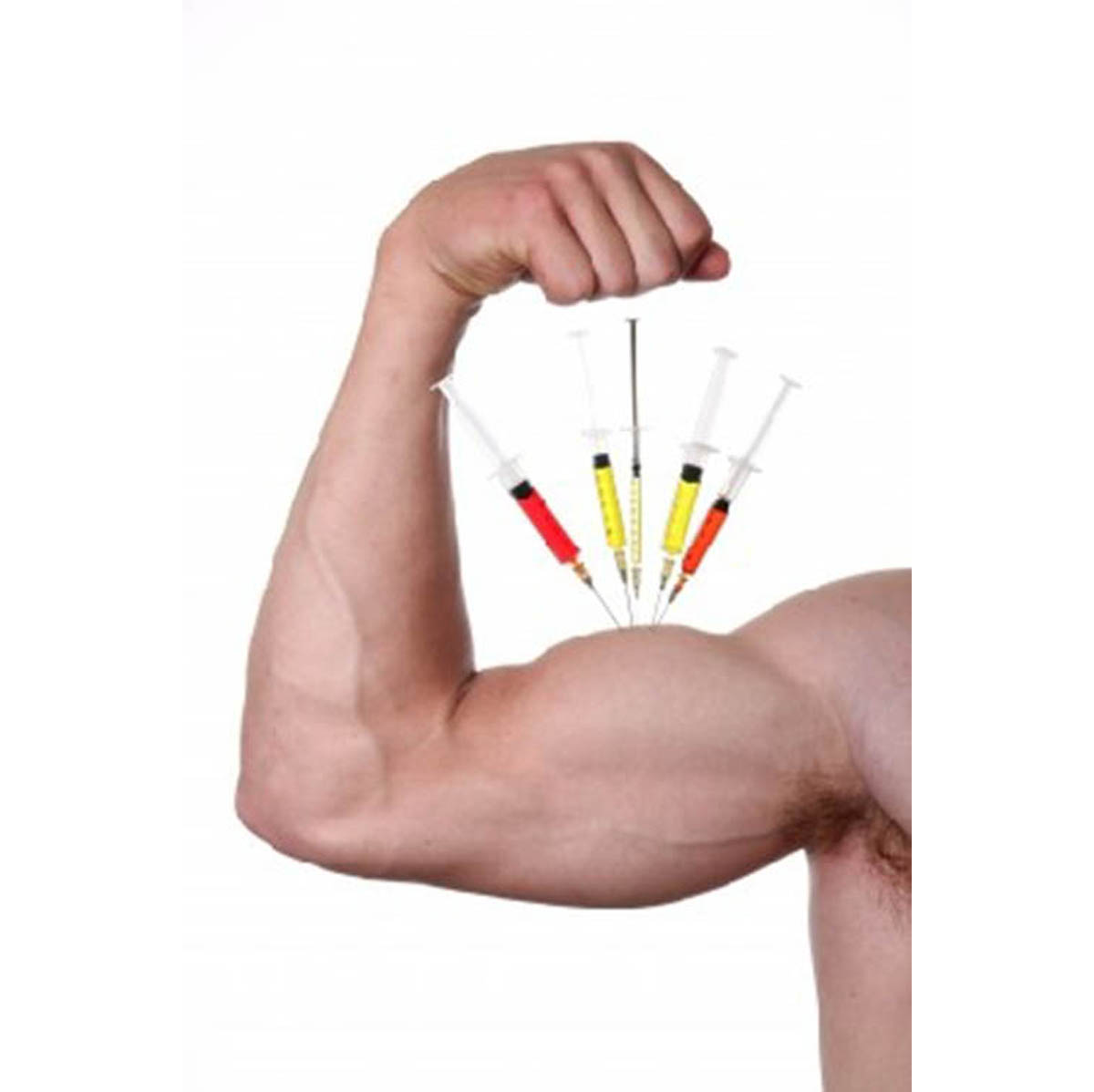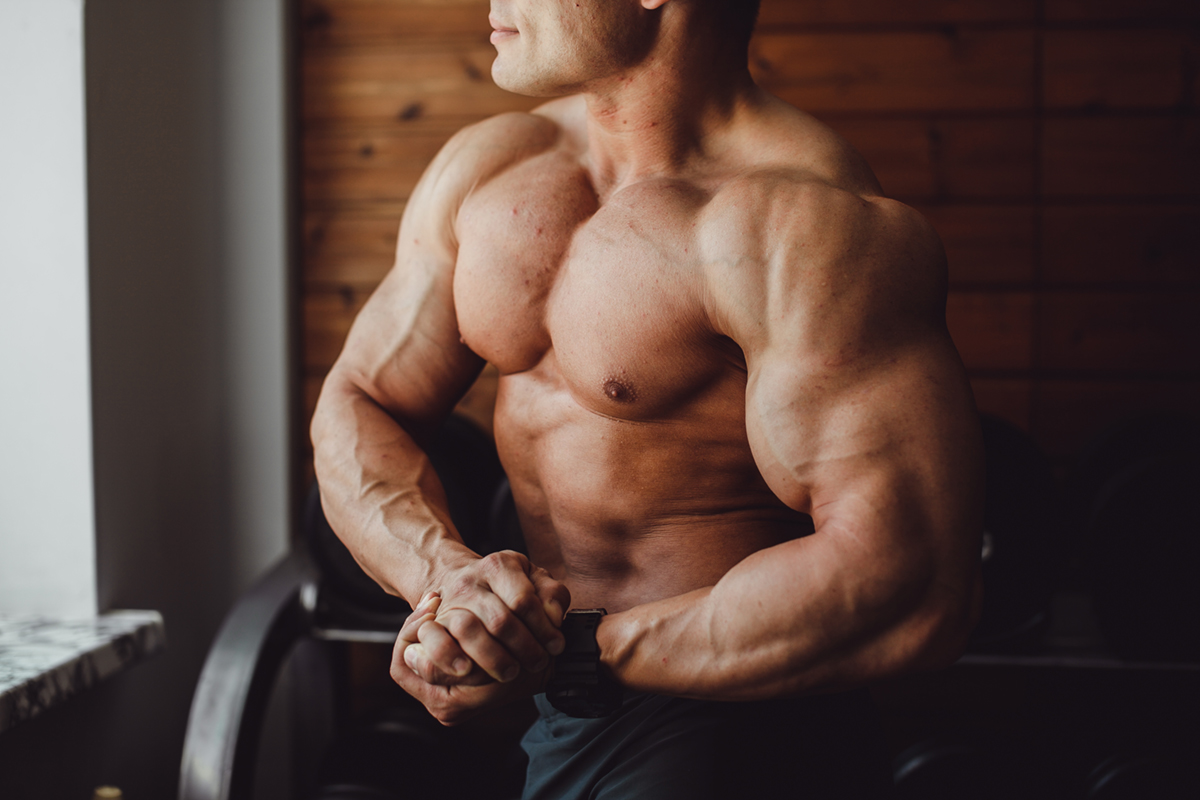An Oregon Cop Buys Illegal Steroids While in Uniform
That means they protect the people who are innocent until proven guilty, too. But most people in the USA draw the line at police personnel buying illegal drugs, specifically illegal steroids, while in uniform.

That's exactly what happened in Canby, Oregon. In February of 2010, a Canby police officer plead guilty to buying illegal steroids while in uniform, riding his police motorcycle out of town to pick up steroids from a drug dealer. And since the Canby police chief had refused to take disciplinary action, he was forced to resign. But why would dedicated law enforcement officials who avoid the temptation to use other illegal drugs get into legal trouble with steroids?
The definition of which steroids are illegal has been getting tougher and tougher
Federal law enforcement has been getting tougher and tougher on illegal steroids. While it's legal to buy a potentially bodybuilding steroid like testosterone with a doctor's prescription to treat a disease, it's clearly illegal to to buy testosterone and other steroids without a doctor's prescription from an unlicensed dealer.
The primary reasons for this classification include their high potential for addiction, serious physical and psychological side effects, and unfair advantage in sports due to their performance-enhancing capabilities.
The potential for abuse is a major concern with steroids. They can be addictive, leading to abuse and illegal distribution. In the realm of sports, their use is considered cheating, as steroids can significantly enhance an athlete's performance, giving them an unfair advantage over competitors. Moreover, the health risks associated with unsupervised steroid use are substantial and can lead to serious long-term health issues.
The long-term health hazards of steroids are varied and serious. Cardiovascular problems are prominent, with increased risks of heart attacks and strokes, often resulting from elevated cholesterol levels, hypertension, and structural changes in the heart. Liver damage is another significant risk, including liver abnormalities and the potential development of liver tumors. Steroids can also cause hormonal imbalances; in men, this might include reduced sperm count, infertility, baldness, development of breasts, and an increased risk of prostate cancer. Women may experience a deeper voice, increased body hair, irregular menstrual cycles, and an enlarged clitoris.
Psychiatric effects are also notable. Users may experience mood swings, aggression (sometimes referred to as “roid rage”), manic behaviors, delusions, and depression. Skin problems like acne, cysts, an oily scalp, and skin can also occur. For adolescents, steroids can prematurely halt bone growth, leading to stunted growth. Additionally, prolonged use of steroids can lead to both physical and psychological dependency. Withdrawal symptoms can include fatigue, restlessness, loss of appetite, insomnia, decreased libido, and cravings for steroids.
It's even illegal to buy some substances that used to be classified as nutritional supplements, like androstenedione. These are substances it used to be possible to buy in a health foods store. Now "andro" is illegal because the human body turns it into testosterone, and a 2004 Federal law put androstenedione in class just below heroin, crystal meth, ecstasy, and pain pills. A small number of professional athletes have been caught using steroids, but most who have been criminally prosecuted face jail time for lying about their use of illegal steroids. Police, on the other hand, are prosecuted for the drug crime itself.
Police are like pro athletes. Police are like pro athletes in that they need muscle strength. Your local policeman may have to wrestle a pistol away from an armed robber some day, after all. And your local policeman may want to pose for a calendar or win a weight lifting competition.
The problem comes when a policeman wanting to show off his strength to his fellow policemen uses illegal steroids to bulk up his body mass before competing in, for instance, a police association weight lifting competition. At least this is what some of the news media tell us. Is there a real problem of steroid use among cops?
248 Cops Tied to a Single Source of Illegal Steroids
At least in New Jersey, there are some cops who really have used illegal steroids. The Newark (New Jersey) Star-Ledger reported that a single doctor in Jersey City, named Joseph Calao, supplied illegal steroids to policemen from 53 different squads.
In 2005, Dr. Calao was a medical practitioner in deep financial trouble. According to the Star-Ledger, he had had to have heart bypass surgery at the age of 38. His pain treatment practice was at the point of closure, when suddenly he had bookings for appointments running months ahead and he started buying $2,000 meals in Manhattan.

The Star-Ledger reports that Lowen's Pharmacy in Brooklyn, New York had acquired vast supplies of illegally imported steroids from China and was looking for a place to sell them. The only way to sell the drugs legally was with a doctor's prescription. Lowen's sent customers to Calao, and Calao sent customers back to Lowen's. Dr. Calao was paid in boxes of human growth hormone, which typically retails for up to $10,000 for a week's supply.
Within two years, the doctor's office had become a hangout for policemen and firefighters from up to 100 miles (160 km) away. Fourteen Hudson County jailers came for drugs. Twenty-seven fire fighers came from Jersey City. Sixteen came from the New Jersey Department of Corrections, and eighteen came from the Passaic Police Department. Altogether, 248 law enforcement and public safety officers, all of them male, relied on Dr. Calao for illegal cocktails of testosterone, human growth hormone, human chorionic gonadotrophin, and a drug called stanozolol, which has an a very important advantage over testosterone: a man's body will not convert excess stanozolol into estrogen so he grows "man boobs."
A well-known side effect of illegal steroids is aggressive behavior, and Calao's operation was uncovered when seven of his patients were themselves arrested for police brutality. Dr. Calao, however, died of hardening of the arteries in 2007. Calao's death caused his whole operation to unravel, but was this a purely local phenomenon?
Is Illegal Steroid Use by Cops a Common Problem in the USA?
Most people recoil at the idea of cops visiting illegal drug dealers of any kind. We want our police officers to have the physical strength and good judgment to do their jobs safely, but we don't want police to "lose it" in a physical confrontation. The two hundred forty-eight cops in New Jersey and New York who were found to have used illegal steroids at one doctor's office were a very small number compared to the 40,000 sworn officers in New York City alone.
How do the numbers compare?
- About one in one five hundred law enforcement officers in New York or New Jersey got illegal steroids from Dr. Calao.
- About one in fifty high school athletes uses illegal steroid drugs.
- About one in one thousand adults in the population at large uses illegal steroids in any given year, and about one in fifty has at any time during life.
Given that about one in one thousand adults uses illegal steroids in any given year, however, the rate of steroid abuse in this one case was several times greater than in the population at large, but nothing approaching the rate of illegal steroid use among teenage athletes. Still, it's reasonable to expect zero tolerance for illegal drug use among the people the public trusts to police illegal drug use.
What do police need to do to police themselves? Here is where the public can help:
- When you have an opportunity to comment on random testing for marijuana and cocaine, which is common in police departments, ask about random testing for steroids.
- When you have an opportunity to support a law enforcement officer who is pursuing an athletic goal without using steroids, give 'em all you can.
- And, most importantly, don't be a law breaker yourself. If you have teenagers, make sure they know about the risks of illegal steroid use—especially how excesses of testosterone get converted into estrogen! If you are involved in athletic competition, do it the hard way, without hormone help. And when you have an opportunity to support your police department in any way, give them a hand. You never know when your act of public support is exactly what your city needs to keep your department clean.
- A. J. Perez. Cops' Use of Illegal Steroids a Big Problem. Newark Star-Ledger, 26 December 2010
- Photo courtesy of Julien Tromeur on Stock Photos: www.sxc.hu/photo/1262266

